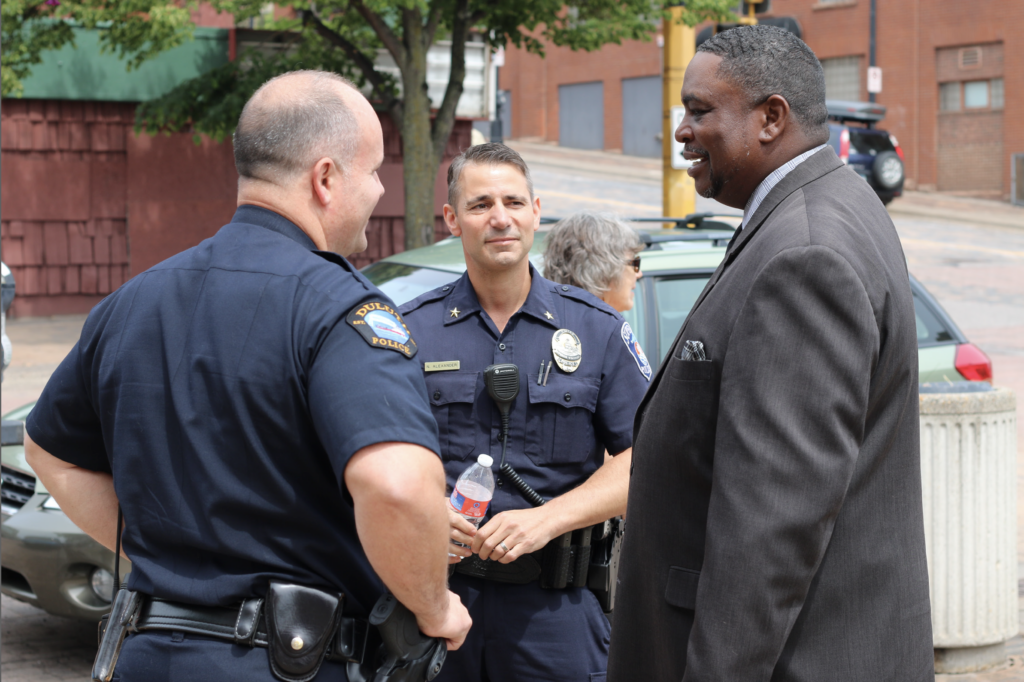
Overview
Do you want to make a positive difference in law enforcement and the communities you serve? The Certificate in Ethical Policing is designed for future criminal justice professionals and community members who want to better understand ethical practices in policing. This three-credit certificate helps you strengthen essential skills such as communication, stress management, self-awareness, and emotional intelligence. You’ll also learn how to recognize ethical dilemmas, understand implicit bias, and build strategies for ethical leadership and positive organizational culture within law enforcement.
Taught by former Superior Police Chief Nicholas Alexander and enhanced with insights from guest speakers, this program provides real-world perspectives on ethical policing.
What You’ll Learn
By completing the Certificate in Ethical Policing, you will be able to:
- Identify accountability measures that promote ethical practices at all levels of law enforcement.
- Recognize and improve organizational culture, and apply strategies for positive change.
- Understand and regulate implicit bias within the context of policing.
- Use effective communication techniques to improve police-community interactions.
- Examine officer misconduct, use of force, and their broader implications.
- Develop ethical leadership strategies that benefit both law enforcement agencies and the community.
Certificate Requirements:
To earn the Certificate in Ethical Policing, students must complete all three required one-credit courses with a minimum GPA of 2.0 in each:
Required Courses:
- CJUS 325 (901): Foundations of Ethical Policing
- Learn the foundations of ethics in law enforcement. Explore personality styles using the Law Enforcement Personal Profile ©, examine implicit bias, and gain insight into how self-awareness impacts officer interactions.
- CJUS 326 (902): Issues in Ethical Policing
- Focus on real-world challenges in ethical policing. Topics include de-escalation, trauma-informed policing, resilience, stress management, officer misconduct, and use-of-force.
- CJUS 327 (903): Leadership in Ethical Policing
- Develop leadership skills for supervising officers and building a culture of accountability, respect, and support within law enforcement organizations.
Ready to get started?
Applying to UW-Superior is easy and free for undergraduate students. Once your application is submitted, you’ll hear from us within just a few days. We’re here to help you every step of the way with any questions you may have, so why wait? Start your application today.
Interested in Graduate Programs?
Visit our graduate programs page to find the program that’s right for you.
Request Information

Come Visit Us
Experience what makes this university truly Superior.
How Can We Help?
Have questions about applying, programs, or campus life?
Our admissions team is here to guide you every step of the way.
